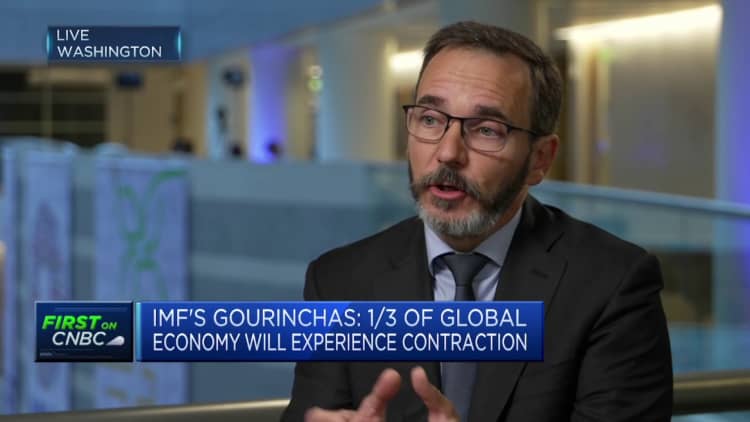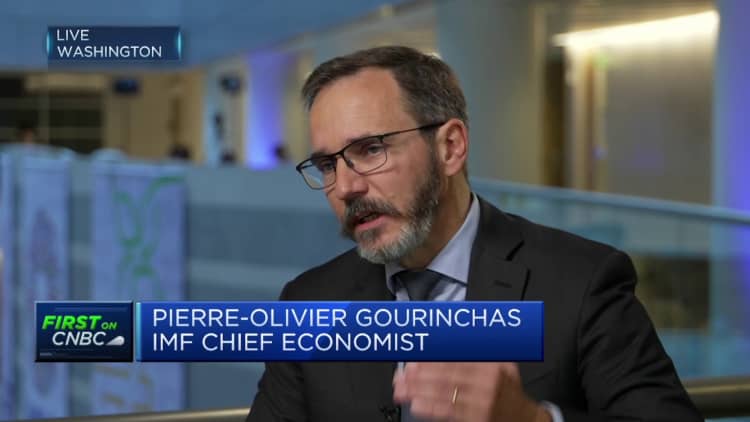The International Monetary Fund urged lawmakers and central bank policymakers to work in lockstep with each other to mitigate the effects of the slowing economic environment.
The IMF issued a rare statement late last month after the U.K. government laid out a series of debt-funded tax cuts that roiled bond markets and the British pound. The IMF suggested British Prime Minister Liz Truss should "re-evaluate" the fiscal package.
The tax cuts came as the Bank of England was looking to start selling bonds into the market, unwinding years of quantitative easing. A steep sell-off in U.K. bonds caused the BOE to delay its gilt sales and launch an emergency package of measures.
Finance Minister Kwasi Kwarteng brought forward the date of his full budget announcement to Oct. 31 to calm financial markets.

When asked by CNBC's Geoff Cutmore Tuesday if the U.K. was a "poster child for economic illiteracy," IMF chief economist Pierre-Olivier Gourinchas said "certainly not."
"We've welcomed the recent developments, the fact that the government has announced a fiscal event at the end of the month. [The Office for Budget Responsibility] is going to be involved in evaluating the proposals. So I think all of this is going in the direction of you know, 'let's do a 360 on the fiscal plans and let's make sure that we're all pulling in the same direction'," Gourinchas told CNBC at the 2022 Annual Meetings of the International Monetary Fund and the World Bank Group in Washington, D.C.
Speaking more generally, however, he said it's very important that fiscal policy doesn't go in the opposite direction of monetary policy. "It would be like having, you know, two people in a car, each of them with a steering wheel, and trying to steer the car in different direction cannot work," he said.
He added that central banks need to bring inflation under control by raising rates.
"It's a bedrock for macroeconomic and financial stability going forward. And so what was announced in the case of the U.K., but not just the U.K., sometimes, you know, is a program that was very expansionary. So that was directly contradicting the objective of monetary policy," he said.
His central message was that fiscal policy is hugely important but that it should be done in a way consistent with what central banks are trying to accomplish.



